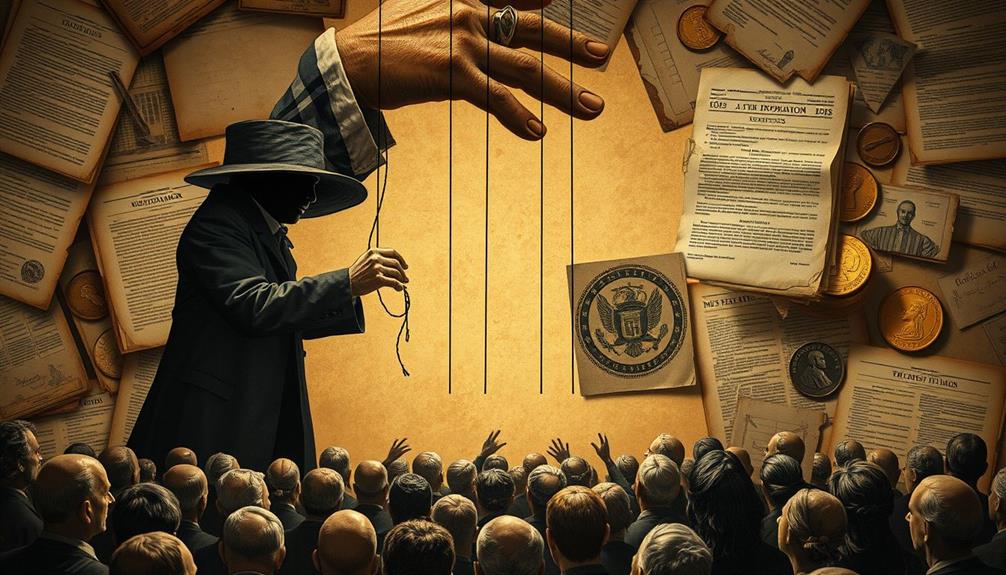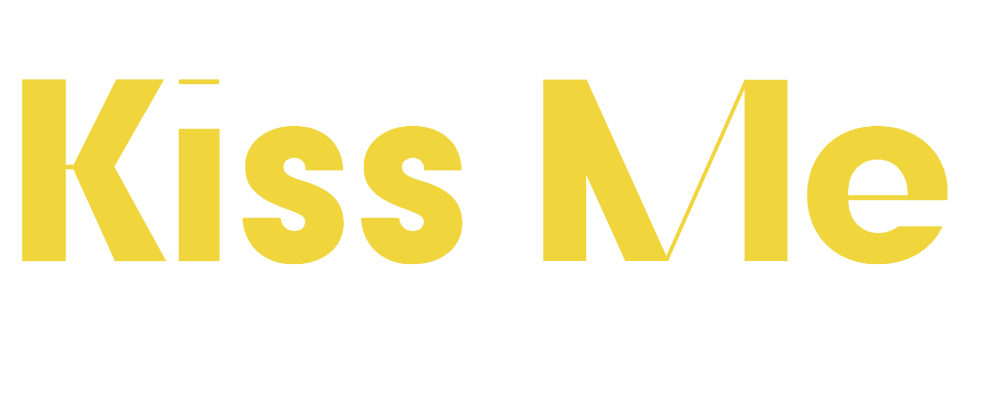You've been led to believe that money is a limited resource, but that's a lie. In reality, wealth flows from the value you create and the problems you solve. This scarcity mindset keeps you trapped, focusing on saving rather than investing. It generates fear and anxiety around money, stunting your growth. When you shift your perspective to see money as energy, you open yourself to abundance. Embrace the idea that wealth isn't just about accumulation—it's about opportunity. Understanding this can change your financial future dramatically. Discover how this mindset shift can transform your wealth journey even further!
Key Takeaways
- Cultural phrases like "Money doesn't grow on trees" create limiting beliefs that hinder financial growth and opportunity recognition.
- A scarcity mindset prioritizes saving over investing, limiting wealth potential and fostering anxiety around finances.
- Money should be viewed as flowing energy, with wealth generated through value creation and solving problems for others.
- Addressing the lies about money is crucial for fostering financial clarity, trust, and a positive mindset towards wealth.
- True wealth encompasses not just money, but also mental, social, physical, and time wealth, contributing to overall well-being.
The Origin of the Money Lie
The origins of the money lie can be traced back to the way parents and society communicate about finances. When you hear phrases like "Money doesn't grow on trees," it instills a sense of financial caution. This reflects a widespread belief in scarcity rather than abundance, which can limit your potential to create wealth.
Parents often share these sayings out of a desire to protect, but they inadvertently reinforce a scarcity mindset. Understanding the importance of diversification of retirement portfolios can help shift this perspective towards one of abundance.
You need to learn that this narrative comes from a lack of understanding about how money works. It's not merely a finite resource; it's a form of energy that you can attract through value creation.
Society and culture often amplify these fears, leading you to experience anxiety around financial stability. This mindset can prevent you from seizing opportunities that could enhance your financial situation.
Impact on Financial Beliefs

Your beliefs about money shape how you approach financial decisions, often pushing you towards a scarcity mindset.
This mindset can make you view opportunities as rare, leading you to prioritize saving over investing.
As a result, you might miss out on chances for growth and innovation that could enhance your financial well-being.
Scarcity Mindset Effects
A scarcity mindset can greatly shape your financial beliefs and behaviors, often leading to detrimental effects on your wealth-building potential.
Here's what you need to know about how this mindset can hinder your financial growth:
- Immediate Savings Focus: You might prioritize saving for today instead of investing for the future, missing out on opportunities that could enhance your financial stability.
- Fear of Spending: This mindset can create anxiety around spending money, preventing you from investing in experiences or skills that could foster personal and professional growth.
- Increased Stress: Research shows that a scarcity mindset often leads to heightened stress and anxiety around finances, which can cloud your judgment and decision-making abilities.
- Overlooking Opportunities: You may focus on limitations rather than possibilities, causing you to miss out on income-generating opportunities that could expand your wealth.
Believing that "money doesn't grow on trees" perpetuates a cycle of financial insecurity.
If you want to break free from these limiting beliefs, it's vital to recognize how a scarcity mindset impacts your financial outlook.
Spending and Saving Decisions
Understanding how spending and saving decisions shape your financial beliefs is essential for breaking free from a scarcity mindset. The common belief that money is scarce can lead you to prioritize saving over spending, limiting your potential for wealth creation. Early teachings, like "money doesn't grow on trees," often instill fear that influences your financial choices.
Research indicates that people with a scarcity mindset make poorer financial decisions, leading to increased stress and decreased well-being. It's vital to reframe your understanding of money as a form of energy. Viewing spending as a means to create value can shift your perspective and help you see it as an investment rather than a loss.
| Mindset Type | Spending Approach | Saving Approach |
|---|---|---|
| Scarcity Mindset | Fearful, limited spending | Excessive frugality |
| Abundance Mindset | Value-driven investments | Balanced saving |
| Growth Mindset | Strategic spending | Purposeful saving |
Your emotional responses tied to money, shaped by upbringing and societal beliefs, greatly impact your financial management. By addressing these beliefs, you can foster a healthier relationship with money.
The Nature of Money

Money isn't just paper or coins; it's often viewed as a form of energy that vibrates at different frequencies. This perspective can transform how you perceive wealth and its creation.
When you understand that money flows through value, you can shift your mindset from scarcity to abundance. Here are some key insights about the nature of money:
- Money as Energy: It attracts similar energies, meaning your mindset influences your wealth. This aligns with the concept of investment goals where defining clear objectives can help direct your financial energy effectively.
- Scarcity vs. Abundance: Believing money is scarce limits your potential and fosters a scarcity mindset.
- Value Perception: People pay for solutions to their problems; recognizing this can drive financial success.
- Creation Through Value: Money is generated by creating value, not just hoarding it.
Creating Value for Wealth

Creating wealth hinges on your ability to identify and solve problems that others face. By addressing these issues, you open up opportunities for creating value that can lead to significant financial rewards. The key is to focus on high-value offers that resonate with potential customers.
When you understand the mechanics of value perception, you can convey your solutions in a way that makes them irresistible. Imagine wealth creation as a simple action—like snapping your fingers. This mindset shifts your focus from obstacles to solutions, enabling you to seize opportunities around you.
It's crucial to recognize that the core principle of generating wealth lies in providing solutions that meet market demands. When you create value, you're not just offering a product or service; you're delivering a solution that enhances someone's life or business.
This transformation of value into financial gain is where your earning potential expands. Remember, the more effectively you can identify problems and communicate your solutions, the greater your chances are for creating lasting wealth. Embrace this mindset, and watch how it changes your approach to opportunities in your life.
Reframing Money Mindset

Shifting your perspective on wealth can considerably impact your financial journey. Instead of viewing money as a limited resource, embrace a mindset that sees it as energy, ready to flow if you understand how to create value. This shift can open doors to abundance and opportunities you mightn't have recognized before.
For instance, investing in a diverse range of precious metals can be a way to create lasting value and security for your future.
Here are four ways to reframe your money mindset:
- Recognize Scarcity vs. Abundance: Challenge the belief that money is finite. Understand that wealth can grow when you create solutions for others.
- Value Over Accumulation: Focus on providing value rather than just accumulating money. This approach enriches both your life and the lives of others.
- Challenge Limiting Beliefs: Identify self-imposed limitations around money. Question these beliefs and replace them with empowering thoughts.
- Attract Wealth: Cultivate positive beliefs about financial abundance. Your mindset will attract better opportunities and outcomes.
Lies and Their Consequences

Deception can weave a web of consequences that ensnares individuals and communities alike, leading to a cascade of mistrust and confusion. When you encounter lies, whether in your personal life or through societal channels, you're not just facing a moment of falsehood; you're engaging with a debt to the truth that must be settled eventually.
The repercussions of these lies can ripple through time, impacting your decisions and the collective mindset of society.
Consider the Chernobyl disaster, where misinformation created catastrophic outcomes. This illustrates how critical it's to confront the truth rather than hide behind lies. When society is inundated with falsehoods, distrust seeps into government, business, and science, hindering progress and collaboration.
Misinformation can lead to panic and poor decision-making, reinforcing the importance of critical thinking and accountability.
Each lie carries weight, affecting how you perceive future information and make choices. If we're to build a foundation of trust and transparency, we must acknowledge the consequences of the lies we encounter.
Only then can we foster a more informed and resilient society.
Historical Context of Misinformation

Misinformation has shaped societies throughout history, often leading to devastating consequences.
You can see this in events like the Chernobyl disaster, where false narratives about nuclear safety created lasting distrust.
Understanding these historical lies is essential to recognizing their impact on our current world and the decisions we make today.
Impact of Historical Lies
Exposing the impact of historical lies reveals how deeply misinformation can erode trust in institutions and shape societal perceptions.
Think about the consequences of events like the Chernobyl disaster. The need for accountability and truth is paramount, yet the failure to confront these realities has far-reaching effects.
Here are a few key points to contemplate:
- Catastrophic Consequences: Misinformation can lead to disasters, as seen with Chernobyl, where negligence spiraled into chaos.
- Erosion of Trust: Persistent lies create long-term fragmentation, damaging public confidence in our leaders and institutions.
- Critical Thinking: Understanding historical lies emphasizes the urgent need for critical thinking in evaluating information.
- Decision-Making Impact: The spread of false information across business and science sectors can derail sound decision-making processes.
Misinformation's Societal Consequences
False narratives have shaped societies for centuries, leading to significant consequences that ripple through history. You've likely seen how misinformation can create societal distrust, eroding public confidence in leaders and institutions.
Take the Chernobyl disaster, for instance. The lack of transparency and false narratives surrounding the event amplified the crisis, leaving lasting scars on public trust in science and governance.
In political contexts, scandals often reveal how misinformation fosters skepticism. When leaders lie or mislead, it breeds disillusionment and division. This distrust can also extend to health issues, as seen in the vaccine debates. Misinformation about vaccines contributed to declining vaccination rates, resulting in outbreaks of preventable diseases that could have been avoided.
Historical contexts like the Cold War illustrate how misinformation exacerbates societal fragmentation. Propaganda fueled divisions, creating an environment of mistrust not just between nations, but within societies themselves.
In today's digital age, the rapid spread of misinformation accelerates these issues, making critical thinking and media literacy essential skills for you to navigate the complexities of contemporary society. Understanding these consequences can empower you to challenge false narratives and advocate for a more informed society.
Ethical Considerations of Truth

The ethical landscape surrounding truth and deception is complex, as every lie carries the weight of potential consequences that can ripple through personal and societal domains.
When you consider the ethical considerations of truth, it's crucial to reflect on how your choices impact yourself and others. For instance, the emotional dysregulation experienced by some individuals, such as those with Borderline Personality Disorder (BPD), can exacerbate the effects of dishonesty, leading to more turbulent relationships and heightened feelings of mistrust.
Here are four key points to ponder:
- Accountability: Each lie can lead to significant repercussions, affecting your credibility and relationships.
- Trust Erosion: Weigh the immediate benefits of a lie against the long-term damage it can inflict on trust, which is essential for healthy interactions.
- Promoting Honesty: Encouraging transparency fosters stronger communities and more meaningful connections among individuals.
- Broader Impact: Reflecting on the nature of truth helps you make informed choices that consider the societal consequences of misinformation, which can lead to fragmentation and distrust.
Embracing Your Unique Journey

Steering through the complexities of truth and deception can often lead to a deeper understanding of your own journey. Embracing your unique path means recognizing that success isn't a straight line; it's a long list of twists, turns, and lessons learned.
Society's timelines can create undue pressure and comparisons, but remember, your journey is yours alone. As you navigate this journey, consider the principles of the Law of Attraction and Personal Finance, which emphasize that an abundance mindset is essential for revealing your financial potential.
True wealth goes beyond financial assets. It includes mental, social, physical, and time wealth—elements significant for your overall well-being. Courage is fundamental as you confront personal truths and make decisions rooted in your beliefs, not others' expectations.
Engaging in lifelong learning and exploring your talents not only boosts your happiness but also enriches your community, showcasing the power of shared abilities. Reflecting on your ancestry and experiences can provide clarity and empowerment, reinforcing the importance of staying authentic to yourself.
Ultimately, embracing your unique journey allows you to define fulfillment on your own terms. So, let go of the pressure to conform, and celebrate the richness of your individual path. This is where real wealth lies.
Frequently Asked Questions
What Is an Example of the Biggest Lie?
One of the biggest lies is believing that financial success defines your worth. You often overlook other essential aspects like relationships, health, and personal fulfillment, which contribute more considerably to your overall happiness and life satisfaction.
What Are the Biggest Lies We Tell Ourselves?
You often tell yourself lies about your worth, success, and future. You think hard work alone will bring rewards, and that happiness is something you can postpone. These beliefs limit your potential and block fulfillment.
Conclusion
You've been fed the lie that wealth is only for the lucky or privileged, but the truth is, 70% of millionaires in the U.S. are self-made. This statistic shows that with the right mindset and effort, you can create your own path to financial freedom. Embrace your unique journey, challenge the misconceptions you've been taught, and start viewing money as a tool for growth, not a barrier. It's time to rewrite your financial narrative! The shocking truth about wealth is that it is within reach for anyone who is willing to put in the work and make smart decisions. By shifting your mindset and taking control of your financial future, you can break free from the limitations that have been imposed on you. It’s time to rewrite your financial narrative and pave the way for a prosperous and fulfilling life.










